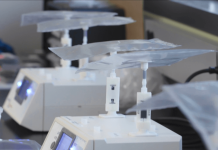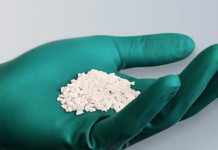EndoQuest Robotics announced it received FDA investigational device exemption (IDE) for a study of its surgical robot. The IDE allows the Houston, Texas-based company to evaluate its Endoluminal Surgical (ELS) system in colorectal surgery. Its landmark multi-center, open-label study looks at the the ELS system’s safety and performance in robotic endoscopic submucosal dissection (ESD) procedures for the removal of colorectal lesions.
EndoQuest expects 50 subjects to participate in the study. It takes place across five leading U.S. healthcare institutions — Brigham and Women’s Hospital (Boston), Mayo Clinic (Scottsdale), Cleveland Clinic (Cleveland), AdventHealth (Orlando), and HCA Healthcare (Houston).
Related: ShiraTronics initiates FDA IDE study for implantable neuromod
EndoQuest designed its surgical robot platform to address unmet needs in gastrointestinal and other endoluminal surgeries. It developed a system that offers precision and flexibility to improve patient outcomes. The proprietary technology navigates and performs procedures within the body’s lumina spaces, allowing for minimally invasive interventions.
The platform makes it possible for therapeutic endoscopists and surgeons to operate through a trans-oral or trans-anal approach. EndoQuest raised $42 million to support the platform a year ago.
“This IDE approval marks a significant milestone in EndoQuest’s mission to revolutionize minimally invasive surgery. Our flexible robotic technology has the potential to transform colorectal surgical outcomes, empowering physicians with innovative tools to deliver less invasive, scar-free procedures,” said Eduardo Fonseca, interim CEO of EndoQuest Robotics. “We’re excited to proceed to human cases and move one step closer to initiating the next paradigm of surgery.”




